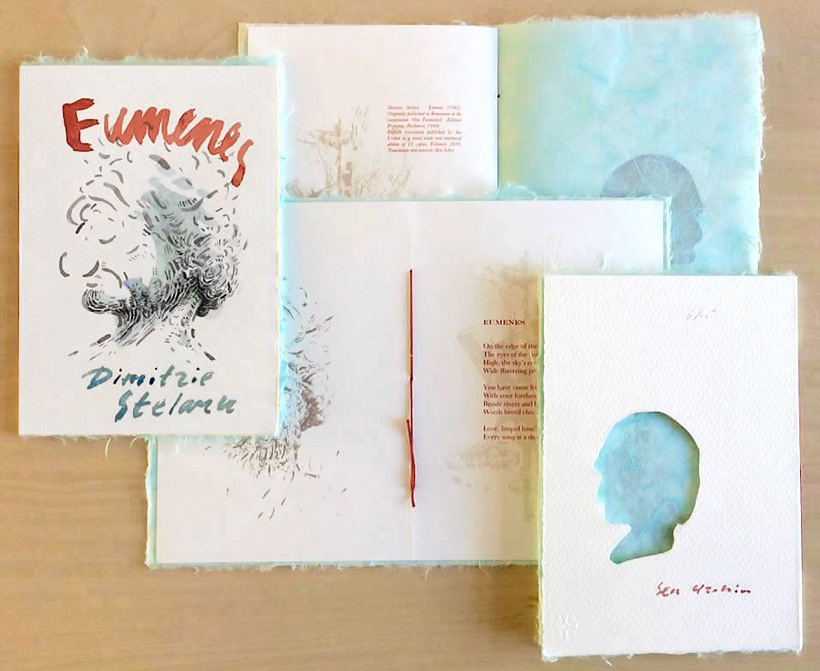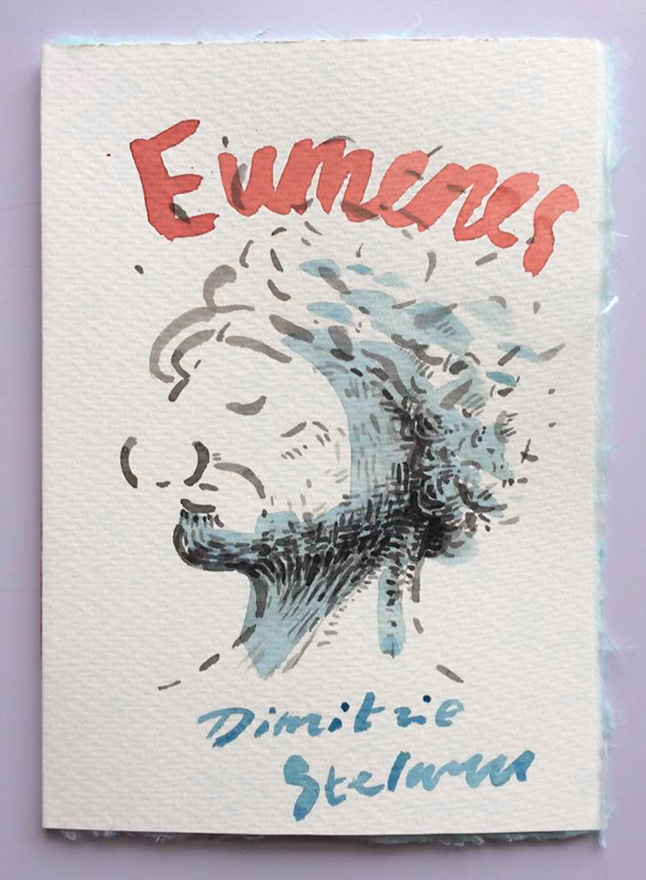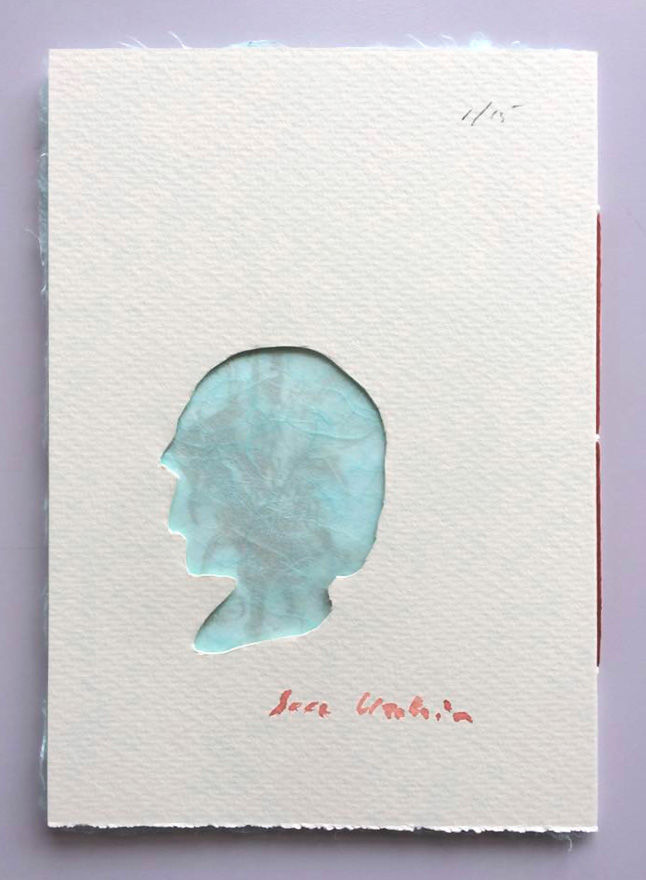
Author: Dimitrie Stelaru
Publisher: Sea Urchin
Year: 2019
Size: 210 x 150 x 4 mm
Language: English
4 pages laser printed on 200 gr paper, flyleaf of Unryu (Cloud Dragon) paper
Binding: red pamphlet stitch
Cover: watercolour on 300 gr Saunders Waterford
Artwork & design: Ben Schot
English Translation: Ben Schot
Limited, numbered and hand made edition of 15
Poète maudit and vagabond Dimitrie Stelaru was born in 1917 as Dumitru Petrescu in Romania’s border region with Bulgaria. He never knew his biological father, who was killed in action during World War I, and developed such a bad relationship with his stepfather that he was sent to a strict Christian boarding school in Transylvania at the age of fourteen. Stelaru escaped the institute’s austere regime a couple of years later and vanished in the fringe of Bucharest’s society. There he did odd jobs, lived in sordid conditions and published his first volume of poetry in 1935 under the telling pseudonym D. Orfanul. Several years later he adopted the penname Stelaru and befriended the poets Constant Tonegaru, Geo Dumitrescu and Ion Caraion, who hung out in the cafés of Bucharest’s Gara de Nord district. The works of this bohemian and escapist literary circle, which would become known as Romania’s ‘lost generation’, can be considered to be a continuation of the long line of Romanian Francophile symbolists. Stelaru retraced this line to its origins and took direct inspiration from Paul Verlaine, Charles Baudelaire and the latter’s translations of Edgar Allan Poe. Stelaru’s poems were for the greater part published in Dumitrescu’s literary magazine ‘Albatros’, until it was shut down by Ion Antonescu’s fascist regime in 1942.
 Stelaru’s poem Eumene has now been translated into English for the first time and has been published by Sea Urchin as Eumenes. The poem was part of Stelaru’s compilation Ora fantastică (The Fantastic Hour), which was published by Editura Prometeu in 1944 shortly before Romania switched sides in World War II and Ion Antonescu was toppled by King Michael I. The volume contained a preface by Eugen Lovinescu and established Stelaru as a poet. But Stelaru’s relative success would only last a couple of years. After the publication of his volume ‘Cetățile albe’ (White Cities) in 1946 Stelaru suffered the fate of many poets of his generation and was, until his death in 1971, as violently repressed by the communist regime as he had been by the fascists in World War II. Eumenes is a visionary poem written during Romania’s turbulent years as an ally of the Axis powers. Despite its intoxicated and escapist imagery the poem’s reference to the ancient Greek general Eumenes who was betrayed by his own troops, appears to be a veiled comment on the political situation of those days.
Stelaru’s poem Eumene has now been translated into English for the first time and has been published by Sea Urchin as Eumenes. The poem was part of Stelaru’s compilation Ora fantastică (The Fantastic Hour), which was published by Editura Prometeu in 1944 shortly before Romania switched sides in World War II and Ion Antonescu was toppled by King Michael I. The volume contained a preface by Eugen Lovinescu and established Stelaru as a poet. But Stelaru’s relative success would only last a couple of years. After the publication of his volume ‘Cetățile albe’ (White Cities) in 1946 Stelaru suffered the fate of many poets of his generation and was, until his death in 1971, as violently repressed by the communist regime as he had been by the fascists in World War II. Eumenes is a visionary poem written during Romania’s turbulent years as an ally of the Axis powers. Despite its intoxicated and escapist imagery the poem’s reference to the ancient Greek general Eumenes who was betrayed by his own troops, appears to be a veiled comment on the political situation of those days.
‘Fine translation, interesting to the ear. And I like looking through the light green page at the image of the cut-out image of I guess a head. Good for contemplation’ (Ed Sanders)


